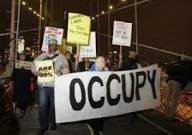(Article changed on October 21, 2012 at 13:53)
(Article changed on October 19, 2012 at 11:50)

For over a decade now, it has taken courage simply to follow events in the public sphere. One after another, the dikes we had built as limits to the harm the most powerful could inflict on ordinary people have been overtopped as if they were merely quaint, decorative borders.
International agreements against wars of aggression; the concept of government by and for the people enabled by true elections; the right to due process under the rule of law; meaningful protection of the environment which sustains us; prosecution of those who misappropriate the public wealth; the right to freely inform the people even if doing so embarrasses the government or reveals malfeasance by its officials; the social contract and its outgrowth, the social safety net--all that and more has gone or been put in serious jeopardy in what seems like an instant. What passes for our government threatens us with bodily harm if we should dare take to the streets to object, by leaking stories of crowd control weapons that permanently maim and massive purchases of ammunition for domestic agencies.
Some of us tried to ignite the spark of protest for months or years without any apparent effect. In fact, things got worse. Then came Occupy.
So far, while it has some general goals, the courageous protestors understandably resist being constrained by a program until the movement builds, and a general consensus organically coalesces around some of the many proposed specifics. Many more people will have to join before it can possibly affect thing one. However, there are already two mindsets among the participants about Occupy's general direction. Both want to remove the mega-corporations with their skewed, inhuman single priority from control over the country's people.
Both agree on the first step--disrupt and refuse to cooperate with the activities of government which aid the corporations in doing so much damage to people and the planet. But then they part ways. Some see this first step as also the final one--leaving a tiny federal government, with almost all social organization based around volunteerism and small, local units, similar to the structure of the Occupy movement itself. Many who think this way consider themselves proponents of new-style Anarchism.
Others want a second step--to enact sweeping pro-democracy federal reforms which would provide the structure and safeguards to restore the U.S. federal government to its original purpose, a people's gov't, and a countervailing force to those who would impose tyranny, instead of being the arm of that tyranny it now is. And to quickly parlay those federal improvements into important changes in state charters of incorporation for for-profit companies in order to prevent them from working at complete cross-purposes with the needs of the general populace and a sustainable planet.
The main objection I have to anarchism is that given human nature, it's impossible. We are not ants, i.e. simple creatures capable only of hardwired behavior based on stimuli and not requiring any decision-making. We do have hardwired tendencies, though. One of them is that unlike bears, leopards, and tigers, we are social beings, not content to live or die by whatever we can get or cultivate entirely on our own and without anything produced by anyone else.
(Note: You can view every article as one long page if you sign up as an Advocate Member, or higher).





